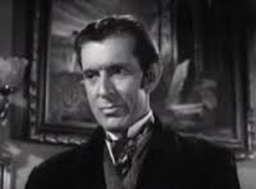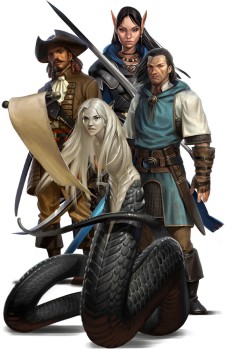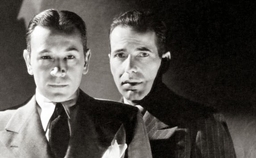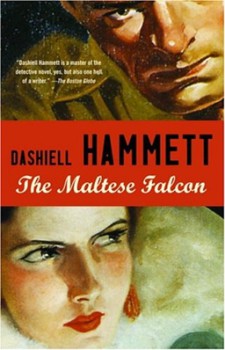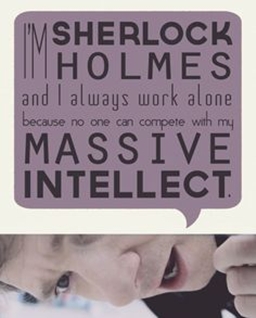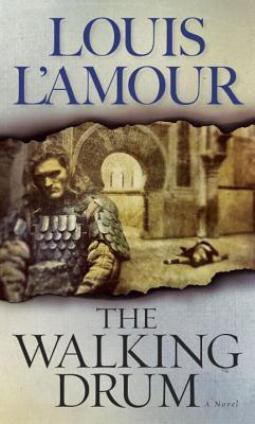The Public Life of Sherlock Holmes: SH – Consulting Detective
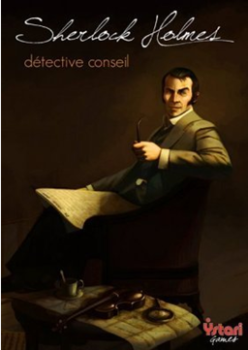 Last week, we talked about the Dungeons and Dragons Adventure Game line. Today, we shift to something a bit more in line with this column’s title. Back in 1981, Sleuth Publications produced Sherlock Holmes, Consulting Detective (SHCD). Expansions, containing additional cases followed and it was also turned in to a PC game. I never played any of these games. Which might make you wonder why I’m doing a post on it now. Well, if you’ve visited this column before, you know that I don’t let little things like that get in my way. However, I have played the 2015 reprint of SHCD and that’s what we’re looking at today.
Last week, we talked about the Dungeons and Dragons Adventure Game line. Today, we shift to something a bit more in line with this column’s title. Back in 1981, Sleuth Publications produced Sherlock Holmes, Consulting Detective (SHCD). Expansions, containing additional cases followed and it was also turned in to a PC game. I never played any of these games. Which might make you wonder why I’m doing a post on it now. Well, if you’ve visited this column before, you know that I don’t let little things like that get in my way. However, I have played the 2015 reprint of SHCD and that’s what we’re looking at today.
In the game, you are one of the famed ‘Baker Street Irregulars,’ the ragged street urchins. I’ve read in reviews that you play Wiggins, but that’s not quite the case. But that makes no difference to the game: just wanted to point it out. Holmes is too busy (and presumably Watson is too clueless) to deal with some unsolved crimes, so he sends you (and Wiggins) out to do his job for him. Really, that’s what’s going on.
The game box contains five components. First is a very slender rulebook. There’s also a map of London with quadrant and building numbers. There is a London Directory that tells you where to find people and places on the map. This ID system ties back to the Casebook, which briefly describes the crime (this is where Holmes gives you your marching orders) and contains all the leads you will follow to try and solve the case. And there are some replica newspapers that contain mostly chaff, but there is also a little bit of wheat to be sorted out.
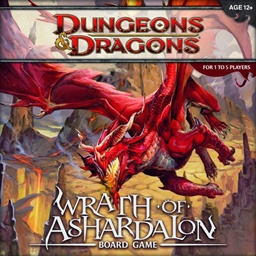
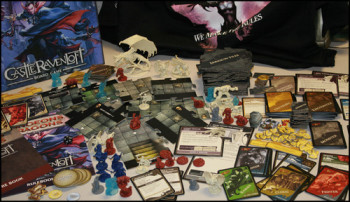
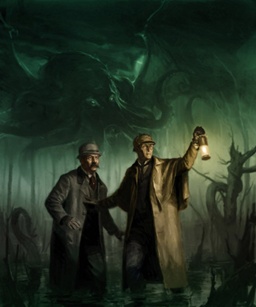
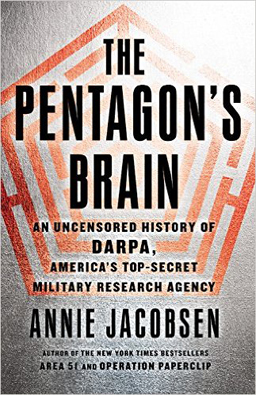 I sat down to read Annie Jacobsen’s 2015 book The Pentagon’s Brain — subtitled An Uncensored History of DARPA, America’s Top Secret Military Research Agency — thinking I’d get a new perspective on the development of the American military-industrial complex. And a new angle on the history of science in the 1950s and 1960s and beyond. Also that I’d learn a bit about the development of the internet, and who the people were who came up with it, and why they did, and what they were thinking. I got all of that. But I also found a new angle on science fiction, and the way SF shapes the world for better or for worse.
I sat down to read Annie Jacobsen’s 2015 book The Pentagon’s Brain — subtitled An Uncensored History of DARPA, America’s Top Secret Military Research Agency — thinking I’d get a new perspective on the development of the American military-industrial complex. And a new angle on the history of science in the 1950s and 1960s and beyond. Also that I’d learn a bit about the development of the internet, and who the people were who came up with it, and why they did, and what they were thinking. I got all of that. But I also found a new angle on science fiction, and the way SF shapes the world for better or for worse.